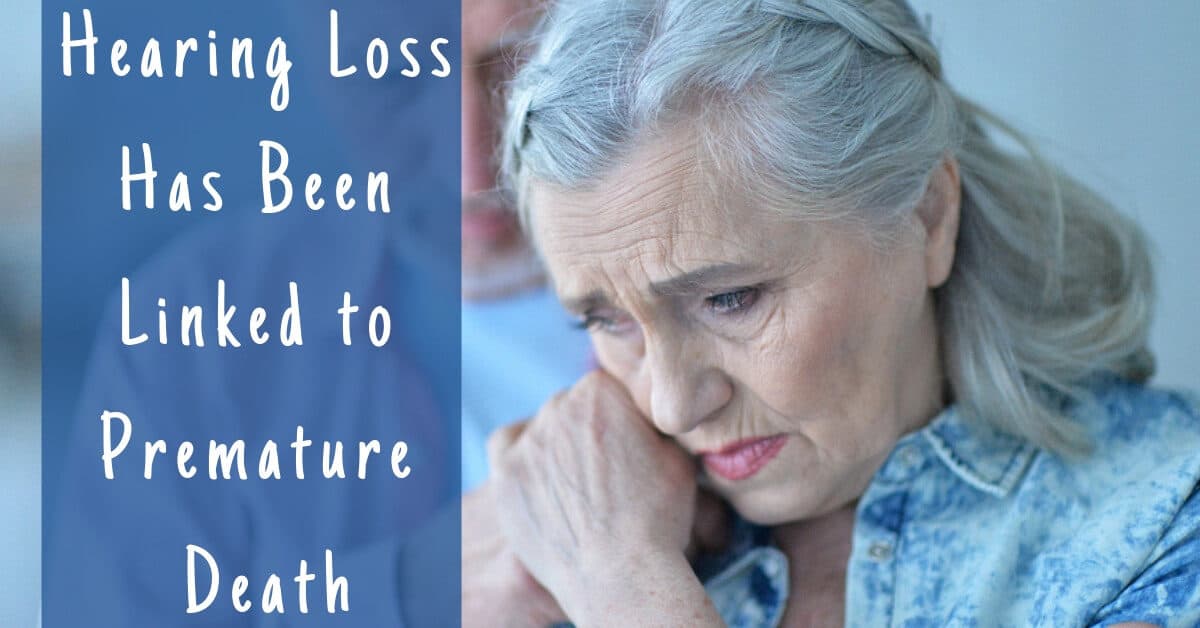
Have you ever thought that your hearing loss is no big deal? Sure, you might miss the odd word here and there, and struggle to follow conversations, especially in places with a lot of background noise, but how bad can it be? In reality, hearing loss is a major health concern, and can affect your overall health and wellbeing, stop you from participating in the things you love, and damage close relationships. You won’t have the confidence to try new things or stay physically active, and you’ll age faster than you should. Have you decided you can live with your hearing loss, labelled it a normal part of aging, and chosen to avoid the issue?
If you think your hearing loss doesn’t matter, it’s time to reconsider. Recent studies have found links between untreated hearing loss and premature death. Treating hearing loss might do more than help you hear, it could even save your life!
Studying Hearing Loss and Mortality
According to researchers at the Columbia University Mailman School of Public Health in New York, those living with hearing loss have a far higher chance of an early death from heart disease or other co-morbid conditions than their hearing peers. People with hearing loss are less aware of their surroundings, and often miss important warning sounds like sirens, bells, or shouts. With hearing loss, balance is also affected, so those living with untreated hearing loss are more likely to suffer serious or fatal accidents than their hearing peers.
How Isolation Contributes to Premature Death
So what does hearing loss have to do with dying? Researchers at the Robert N. Butler Columbia Aging Center at Columbia University say that it’s all about the social isolation. When living with untreated hearing loss, you don’t have the same access to friends, family, and other forms of social support. You spend more time alone, and experience isolation and depression, or even lose the will to live. In fact, hearing loss increases the risk of mortality particularly among those who are separated, divorced, or widowed. “Old age greatly increases the risk for hearing loss,” said Vegard Skirbekk, explaining their findings. “Therefore, as the population ages, we are seeing increasing numbers of people with hearing loss. At the same time, there are greater numbers of adults living without a partner–putting people with hearing loss at an increased risk for death.”
Hearing Clearly Might Just Save Your Life
The study took a closer look at people with hearing loss who had a partner or close family member with clear hearing. Those with untreated hearing loss who had a hearing spouse had far better health outcomes than those who were separated or widowed, and had normal mortality rates. The hearing spouse was able to provide social support even though the person struggled to hear. They acted as the primary supporter, encouraged them to attend social events, and helped them communicate with friends and loved ones. This increased their quality of life higher, and despite their hearing loss, they had fewer rates of isolation and depression, as well as fewer safety concerns.
Not only that, but those with a supportive spouse were more responsive when reminded of their hearing loss, admitted that they struggled to hear, and were more likely to look after their hearing health and invest in hearing aids. Having a hearing partner could also offset the financial stress of treating hearing loss, and could make it economically possible to look after hearing health.
Treating Hearing Loss
If you’re living with untreated hearing loss, don’t brush if off, or decide your hearing loss isn’t affecting you. Whether you know it or not, living with untreated hearing loss is driving a wedge between you and the people you love the most, as it becomes more and more difficult to communicate. Not only that, but if you live alone, or have a spouse who’s also hard of hearing, you’re more likely to experience social isolation, depression, or even an early death. Take control of your hearing health, and call us today at My Hearing Centers to book a hearing test, and find out what a quality hearing device can do for you. Who knows, it might even save your life!
